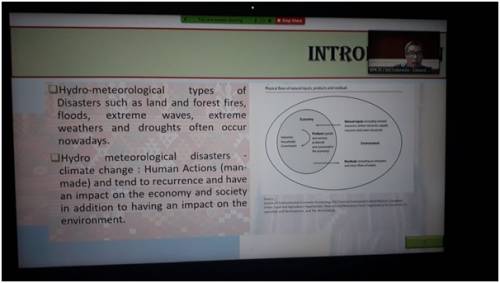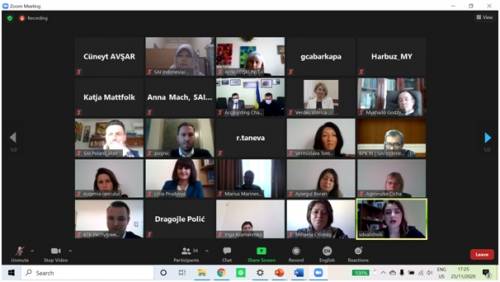BPK Shares its Experiences in Disaster-Related Audits at the 6th Meeting of INTOSAI EUROSAI WGDC

JAKARTA, BPK Public Relations - The Audit Board of the Republic of Indonesia (BPK) shared its experience in disaster audit at a seminar in the 6th Meeting of the INTOSAI EUROSAI Working Group on the Audit of Funds Allocated to Disasters and Catastrophes (WGDC). The seminar held virtually on Wednesday, November 25, 2020was a forum for sharing experiences in conducting disaster audit among Supreme Audit Institutions (SAIs) within the European Organization of Supreme Audit Institutions (EUROSAI).
Presenting the theme of Prevention of Man-Made Disasters: Three Steps in the Future, the seminar was attended by 34 participants from 14 member SAIs of the WGDC. The seminar was opened by Victor Bogun, a member of the Accounting Chamber of Ukraine representing the SAI of Ukraine as the Chairman and Secretariat of the WGDC.
In his remarks, Bogun emphasized the importance of the seminar in gaining knowledge and understanding on the concept of disaster and man-made disaster, as well as disaster-related audits and audit guidelines from academician and practitioner perspectives.

The BPK Senior Advisor for Environment and Sustainable Development, Edward Ganda Hasiholan Simanjuntak, was one of the speakers of the seminar. In his presentation entitled "Man-made Disasters and Their Audits – Lesson Learned from Previous Man-Made Disaster-Related Audits", he shared BPK's experiences in auditing man-made disasters in Indonesia. The audits carried out in the period of 2007-2018 were related to hydro methodological type of disasters such as forest fires and floods. This type of disaster caused by climate change and greatly influenced by humans, occurred repeatedly and brought an impact on the economic, the people, and significantly on the environment.
At the end of his presentation, Edward mentioned some lessons learned from BPK’s disaster-related audits including financial, performance, and compliance audits. First, auditors had to have deep understanding on characteristics of man-made disasters, which were those occurring repeatedly and worsen if the causes were not properly resolved. Second, an audit strategy was needed to help auditors see more strategic problems or audit materials rather than just operational. The strategy would have to focus on policiesthoroughly considered to ensure that "there was no one left behind" and to formulate added values and multiplier effect recommendations urging further strategic actions. Third, the audit on man-made disasters should focus on mitigation, data, and information. Fourth, the audit had to consider the use of certain data and technology, as well as inputs from experts as the audit tools.
Beside from the BPK, the seminar also presented other two speakers from the National Academy of Sciences of Ukraine, who explained academic approaches to the concept of disaster and disaster prevention measures, and the representative from the SAI of Turkey, who discussed the evaluation of the use of ISSAI 5500 in the disaster-related audit. The three speakers collaborated in providing understanding on the concept of disaster, mitigation, audit, and implementation of ISSAI 5500 in the man-made disasters related audit.
